The bilateral relations between India and Israel have deepened and widened since full diplomatic relations were established in 1992. Both nations share common values, interests, and similar challenges in various spheres – from security to food and energy security. Recently, much progress has been made and today, both countries cooperate in various levels and fields such as political issues, commerce and trade, science and technology, education, development, culture, tourism, agriculture, water, and more.
Indo-Israeli Agriculture Project
Both nations have jointly developed new crop varieties and share post-harvest technologies following the success of the 10-year-old Indo-Israeli Agriculture Project (IIAP) whose accomplishments include the successful growing of cherry tomatoes in Haryana, rejuvenating mango orchards in Maharashtra, and demonstrating to Indian farmers the effectiveness of state-of-the-art irrigation technologies.
India and Israel signed a three-year work program for cooperation in Agriculture
Last month, India and Israel signed a three-year work program agreement for development in agriculture cooperation. Both the countries are also implementing the “INDO-ISRAEL Agricultural Project Centres of Excellence” and “INDO-ISRAEL Villages of Excellence”. The first stage of the Indo-Israeli Agricultural Cooperation Project started in 2008 following the signing of a three-year Action Plan based on a Government to Government Agreement. History of the agricultural relationship between India and Israel:
What is the aim of the 3-year Work Programme?
The aim of the work programme is to grow existing Centres of Excellence by.
-Establishing new centres
-Increasing CoE’s value chain
-Bringing the Centres of Excellence into the self-sufficient mode,
-Encouraging private sector companies and collaboration.
What are INDO-ISRAEL Villages of Excellence?
The “INDO-ISRAEL Villages of Excellence”, is a new concept aimed at creating a model ecosystem in agriculture across 8 states, alongside 13 Centers of Excellence within 75 villages.
The aim of the programme is to promote the increase of net income and better the livelihood of the individual farmer. Therefore, transforming traditional farms into modern-intensive farms based on IIAP standards.
A large-scale and complete value chain approach with economic sustainability, embedded with Israeli novel technologies and methodologies will be tailored to local conditions.
The centres of excellence and Horticulture in India
With 29 operational Centres of Excellence (COEs) across India in 12 States, the Ministry of Agriculture & Farmers Welfare of India, and MASHAV – Israel’s Agency for International Development Cooperation – are leading Israel’s largest G2G cooperation, implementing Advanced-Intensive agriculture farms with Israeli Agro-Technology tailored to local conditions.
The Centres of Excellence provides the latest information, by demonstrating the best practices and gives training to the farmers. Every year, these COEs produce more than 25 million high-quality vegetable seedlings, more than 387 thousand quality fruit plants and train more than 1.2 lakh farmers about the latest technology in the field of horticulture.
Ambassador of Israel to India, Dr. Ron Malka said, “The three-year work program (2021-2023) reflects the strength of our growing partnership which will benefit local farmers both through the Centers of Excellence and the Villages of Excellence”.
History of the agricultural relationship
In the agricultural sector, India and Israel had bilateral relations since 1993. So far, Indian and Israel have successfully completed 4 action plans and this one is the 5th Indo-Israel Agriculture Action Plan (IIAP).
Therefore, for the benefit of the farming community, this new work program will further strengthen the bilateral relations and mutual cooperation between the two countries in the field of agriculture.
India-Israel Relations.
India announced its recognition of Israel in1950. Since the upgradation of relations in 1992, defence and agriculture formed the two main pillars of the bilateral engagement between both nations.
In recent years, relations have seen rapid growth across a broad spectrum of areas and the future vision of cooperation, also bilateral trade has diversified into several sectors such as pharmaceuticals, agriculture, IT and telecom, and homeland security.
Indian software companies, notably TCS, Infosys, Tech Mahindra, and Wipro, have been expanding their presence in the Israeli market. Potash is a major item of Israel’s exports to India, with India buying a significant percentage of it. There is a growing preference for Israeli companies in sectors such as water technologies, homeland security, and real estate in addition to traditional areas such as agriculture, chemicals, etc in India. Teva Pharmaceuticals, IDE, Netafim, ADAMA, etc. are among the leading Israeli companies, which have notable investments in India.
India imports critical Defence technologies from Israel and there are regular exchanges between the armed forces.
In the face of COVID-19’s crucial threat, Israel and India have demonstrated their ability to work together in crisis situations, developing robust collaboration in areas such as defence equipment, medical kits, and diagnostic technologies during the pandemic.








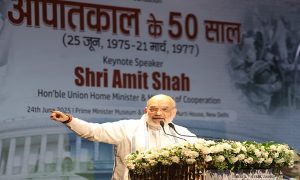



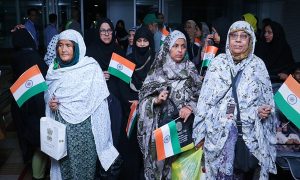

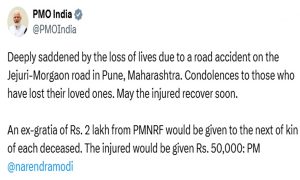



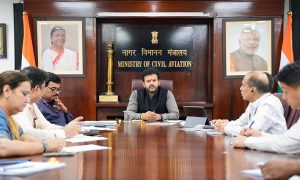



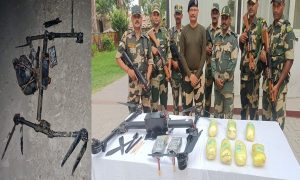





 WhatsApp us
WhatsApp us